What we do
With over 25 years of experience in youth empowerment, we have innovative methods that have proven to nurture well-rounded graduates who are ready to enter the workforce.
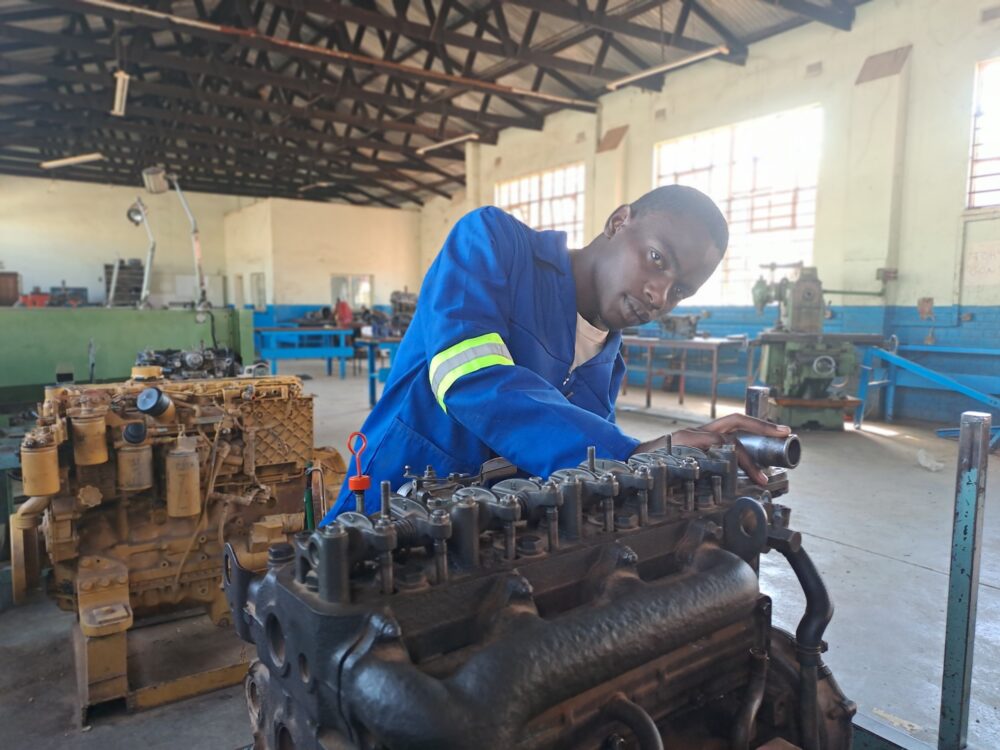
Integral TVET training
Our integral approach to youth development equips young people with economic, social, and emotional soft skills. Our vocational training is hands-on, with 70% of the curriculum being practical and 30% theoretical. We deliver technical skills in a variety of vocations, integrated with a wide range of essential soft skills:
- Life skills education
- Entrepreneurship training and business support
- Financial literacy
- Digital literacy
- Internal savings and lending schemes
- Sexual health and rights (SRHR)
- Counselling and peer coaching
Franchise business model
The aim of the franchise business model is to shape every skills training and production unit into a viable, self-reliant enterprise with the capacity to generate wealth and jobs for the community while training young people on the job. With this model, endorsed by UNESCO-UNEVOC, Young Africa invests in a TVET centre, and each training unit is rented out to a local entrepreneur, ‘the franchisee’. Rental fees from franchisees cover operating costs and contribute to the operational sustainability of the centre.
Young people—students—pay a modest fee for training, most of which goes to franchisees who deliver the training at a well-equipped business unit within the centre.
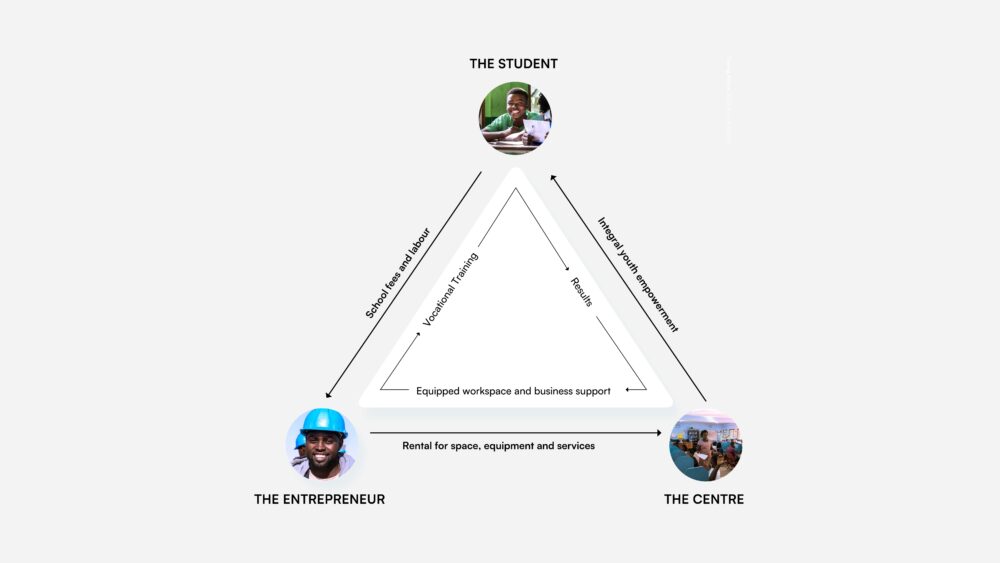
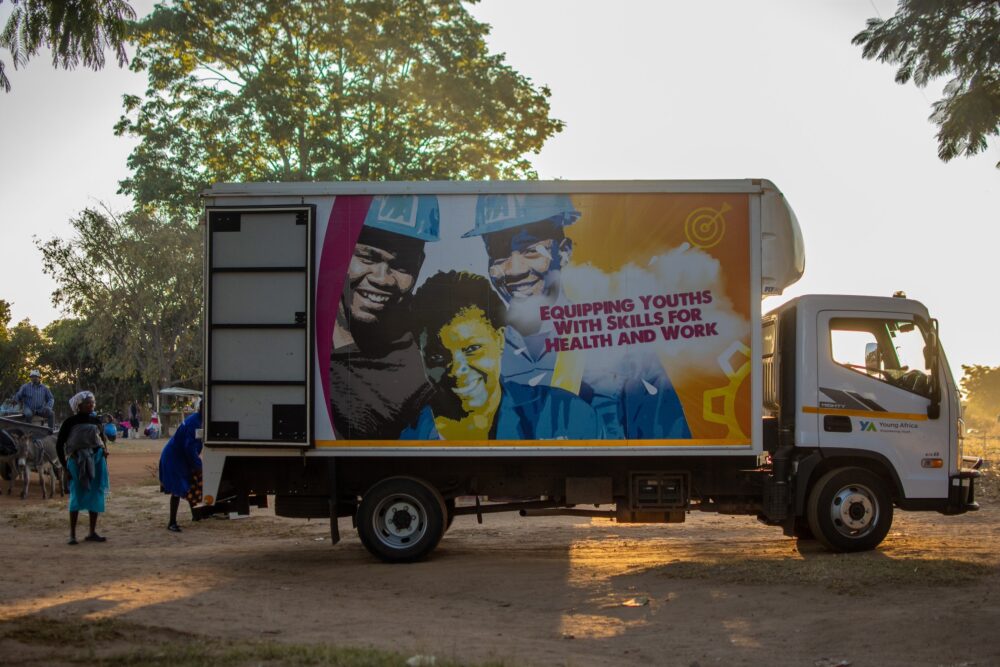
Mobile Training Units
Through this model, Young Africa delivers the same holistic-skills-training that is offered at its centres to marginalised youth in rural areas, border towns with migrant communities, and conflict zones within the countries in which we operate. Teams of trainers and support staff establish pop-up training sites for a period of 3-6 months in collaboration with local businesses and entrepreneurs, followed by 3 months of internship. The courses on offer in mobile training locations are informed by rapid market and youth needs assessments.
Local entrepreneurs, local authorities, Community-Based Organisations (CBOs), Faith-Based Organisations (FBOs), local government, and private vocational training providers are consulted and collaborate in various ways, including providing trainers, referring beneficiaries, offering internships, and contributing to the alignment of our curriculum.
E-learning
Young Africa will offer young people the opportunity to gain technical skills in various trades through a digital platform designed for today’s market needs. YA E-learning, the platform, offers young people the chance to develop industry-specific skills in trades of their choice, along with practical exercises.
Through interactive modules, hands-on activities, and expert guidance, this transformative initiative will empower aspiring entrepreneurs to navigate the start-up landscape with confidence. They will learn essential business skills, from ideation and market analysis to financial planning and scaling of their ventures. This will be complemented with practical, on-the-ground lessons led by some of the community’s leading entrepreneurs.
This is our way of meeting the evolving needs of the youth and preparing them for future success.
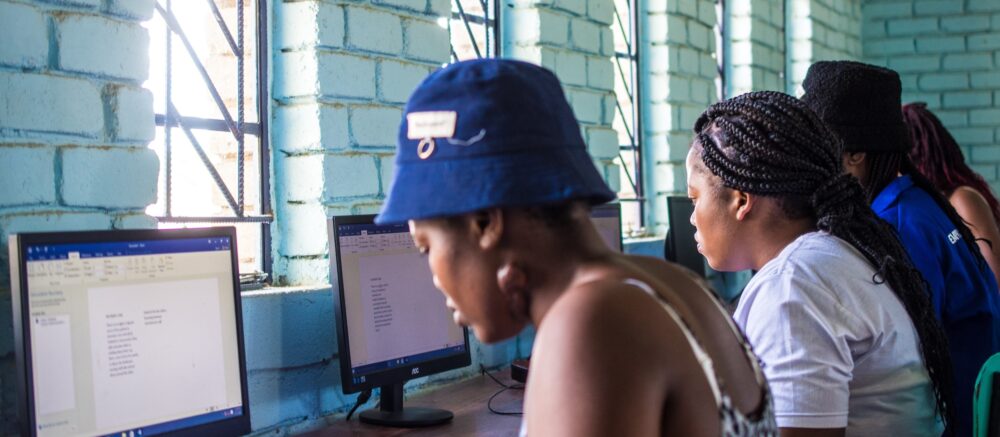
Contact us
Partner for impact
Want to create impact with us? Interested in our unique approach in partnering with us or if you have any other questions? Please contact us – Christian Schaefer will be happy to work with you.
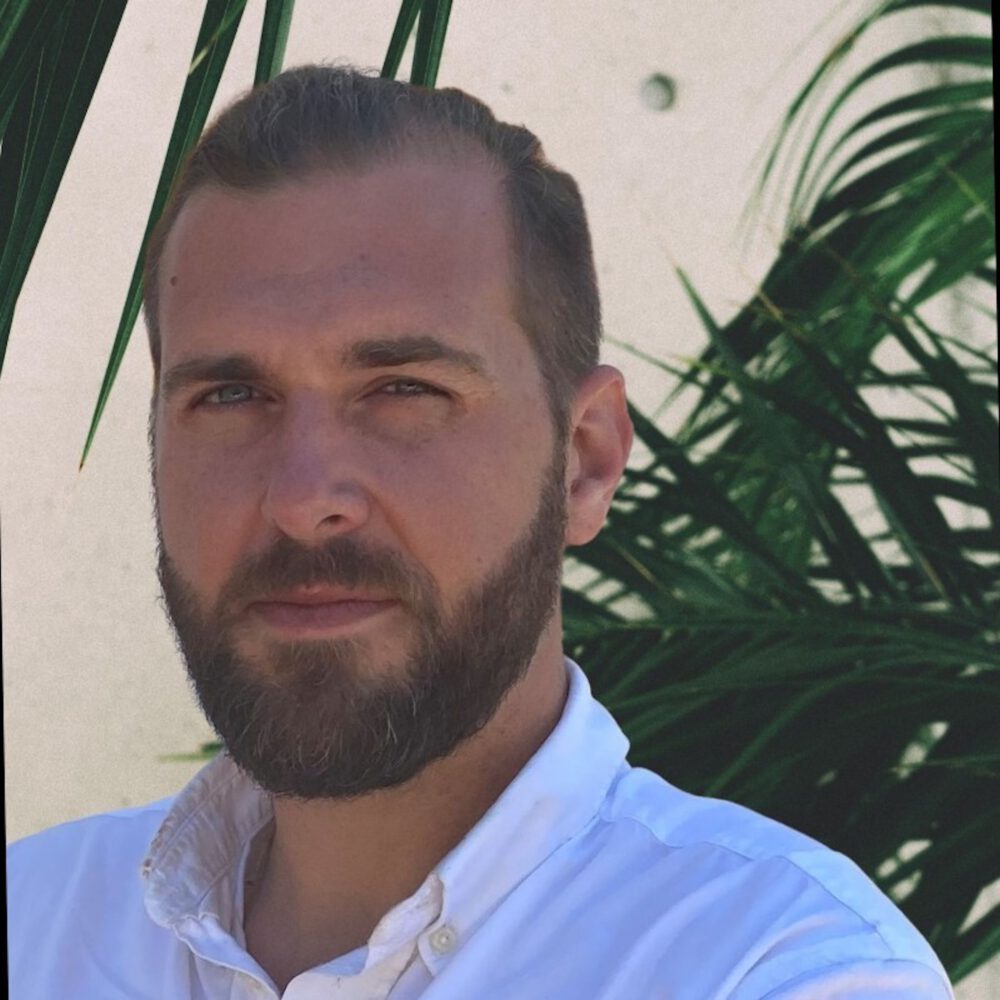
Christian Schaefer
christian.schaefer@youngafrica.org
Partnership and Innovation Manager
Stay updated—
subscribe to our newsletter today!